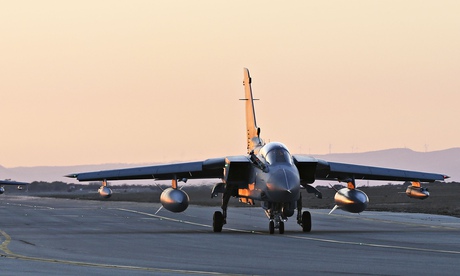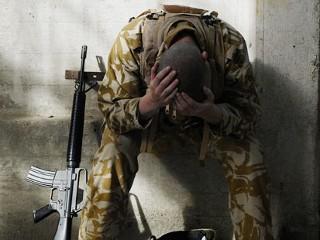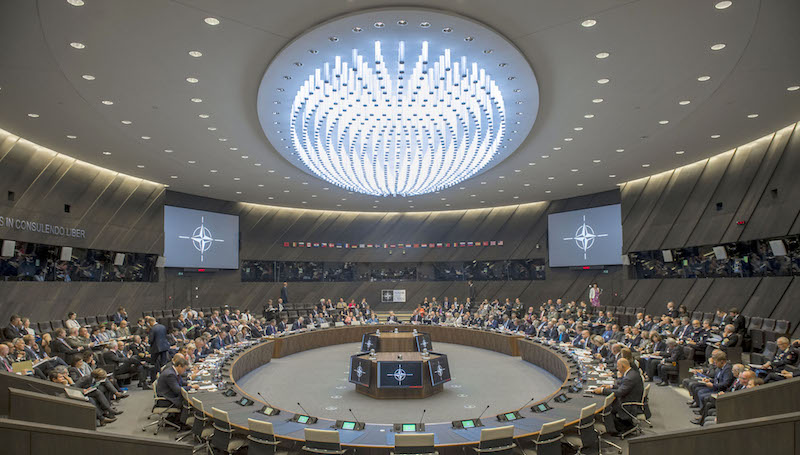After the Islamic State’s (IS) blistering charge across the Iraqi desert, and widespread atrocities, including against, and possibly perpetrated by, British citizens, the United Kingdom has finally joined the campaign against them following the recall of Parliament on September 26 2014. Royal Air Force (RAF) jets have been conducting combat operations against IS for a week now. They had already been part of reconnaissance and humanitarian operations almost from the start of the international intervention. This two-part article will look at what dragged the UK back into Iraq, what its likely contrinution will be, and whether the sharp defence cuts initiated in the 2010 Strategic Defence and Security Review have limited Britain’s usefulness to the international coalition.
When the escaping Yazidi community was trapped on Mount Sinjar by IS , the US intiated military and humanitarian action against this brutal organization to prevent a “potential genocide“. The United Kingdom supported this campaign with reconnaisance flights, and humanitarian airdrops to the entrapped Yazidi. Furthermore the UK moved six Tornado GR4 fighter-bombers to the RAF base in Cyprus, which is some 800km away from Mount Sinjar. Chinook helicopters were also moved to Cyprus, with the possible view of evacuating civilians from the mountain. Some commentators even suggested that SAS soldiers were on the ground alongside US special forces, assessing the situation on Sinjar. Even though the threat against the Yazidi diminished after Kurdish fighters managed to secure a corridor for them to escape from the IS siege , the British forces remained in Cyprus. The RAF continued to conduct reconnaissance flights while the USAF broadened its air campaign to strike IS throughout Iraqi territory.

Over the summer, Prime Minister David Cameron faced pressure to recall Parliament from summer recess so as to vote upon and authorise British military action against the Islamic State. One of the key explanations advanced for his refusal to do so was the painful memory of last year’s humiliating rejection of the proposed punitive air campaign against Assad for his use of chemical weapons, by the Labour opposition, as well as some Conservative rebels.
This argument seems unconvincing as the operations are very different in nature. Though the campaign against IS can be described as amorphous and potentially ill-defined it has nothing on the quick plans put before Parliament last year. First, the legal basis for the operations were very different as bombing Assad’s facilities would have amounted to an act of war as a result of the lack of UN approval. In contrast , there is UN approval in Iraq’s case as its then Prime Minister Nouri Al-Maliki made a direct request for international support to defend Iraq’s territory against IS. Secondly, the risks involved are also smaller as IS has little to no anti-air capacity, although there were recent reports of an Iraqi Army helicopter being shot down, whereas Syria’s chemical facilities and command centres were almost certainly protected by sophisticated Russian-made anti-air technology. Finally, where action against IS could serve a number of aims such as, preventing terrorist expansion, protecting civilians, and buying local forces time to regroup, it was never clear what purpose the campaign against Syria would have had beyond “doing something”.

Nevertheless, facing a restive party and a possibly union-shattering referendum, plus nine months before a tight general election, Cameron may simply not have wanted to add anything else to his plate. However, Britain must have felt pressured to offer at least token support to the campaign. The USA, which had already struck dozens of targets in Iraq, expanded its air war to Syria and was joined by a number of Arab states in doing so, while other European states offered support in Iraq.
Indeed, some British commentators argued that the UK contribution was largely symbolic, intended to demonstrate British commitment to its special relationship with the USA, European foreign policy, and the protection of minorities.
In the end, on September 26, Parliament voted by a comfortable majority of 524 to 43 to authorise air-strikes against IS in Iraq. This authorisation was explicitly not extended to cover Syria, creating the possibility of a disaligned coalition, where the USA strikes IS across the border, while its European allies strike only in Iraq, and its Arab allies join the US in Syria.
As soon as the authorisation was given, RAF warplanes took off from Cyprus to seek targets in Iraq. The nature of this campaign so far, and the impact British defence cuts have had on it, will be discussed in the next article.




